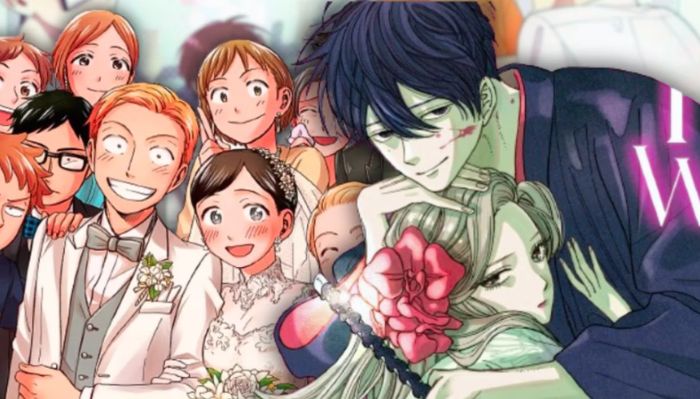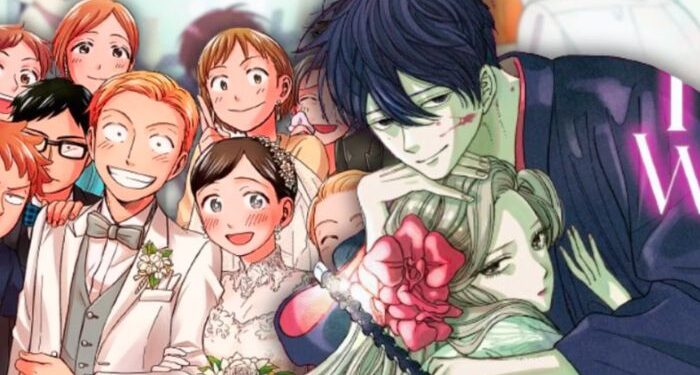Romance manga often focuses on the emotional and relational aspects of love, but many series also delve into significant social issues, using romance as a lens to address real-world problems. This article explores how romance manga can serve as a platform for discussing and reflecting on various social issues, shedding light on their impact and offering insights into how love stories can contribute to societal conversations. For more in-depth analyses and reviews of romance manga, visit zinmanga, where we provide a comprehensive look at the genre’s diverse themes and narratives.

The Intersection of Romance Manga and Social Issues
1. Tackling Mental Health Challenges
Romance manga can be a powerful medium for addressing mental health issues. By weaving mental health themes into romantic narratives, these stories can help raise awareness, reduce stigma, and offer comfort to readers who may be struggling with similar challenges.
- “A Silent Voice” by Yoshitoki Oima: This manga explores themes of bullying, disability, and mental health through the lens of a romantic relationship. The story follows the protagonist’s journey to seek redemption and understanding from his past actions, while also addressing the struggles of his love interest who has a hearing impairment. This series highlights the emotional and psychological impact of these issues, promoting empathy and understanding.
- “Orange” by Ichigo Takano: In “Orange,” the protagonists deal with the consequences of depression and suicide, and their efforts to support each other through these challenges form the core of the romantic narrative. The series emphasizes the importance of communication, support, and seeking help, making it a poignant exploration of mental health.
2. Addressing Social Inequality and Discrimination
Romance manga can also reflect and critique social inequalities and discrimination. By integrating these themes into love stories, the genre can highlight societal issues and encourage readers to think critically about the world around them.
- “The Bride Was a Boy” by Chii: This autobiographical manga addresses issues of gender identity and same-sex marriage through the author’s personal experiences. By presenting a romantic narrative that includes themes of social acceptance and the legal challenges faced by LGBTQ+ individuals, the series provides valuable insights into the experiences of marginalized communities.
- “My Lesbian Experience with Loneliness” by Kabi Nagata: This manga explores themes of sexuality, mental health, and societal expectations through a deeply personal and romantic lens. The author’s reflections on her struggles with identity and societal pressures offer a candid look at the intersection of romance and social issues.
3. Exploring Cultural and Societal Expectations
Romance manga often examines cultural and societal expectations, particularly those related to gender roles and relationships. These stories can provide commentary on traditional norms and offer alternative perspectives on romantic dynamics.
- “Boys Over Flowers” by Yoko Kamio: This series challenges traditional gender roles and class structures through its depiction of a romantic relationship between a working-class girl and a wealthy boy. The story critiques social hierarchies and expectations, offering a nuanced view of class and gender in romance.
- “Nana” by Ai Yazawa: “Nana” delves into the complexities of modern relationships, focusing on themes such as career aspirations, personal growth, and the impact of societal pressures on romance. By portraying characters with diverse backgrounds and ambitions, the series addresses various cultural expectations and the challenges they pose.
4. Highlighting Personal and Family Struggles
Many romance manga series explore personal and family struggles, using romantic relationships as a backdrop to address broader issues. These stories can resonate with readers who face similar challenges in their own lives.
- “Fruits Basket” by Natsuki Takaya: This manga tackles themes of family dysfunction, trauma, and personal healing. The protagonist’s relationship with the Sohma family reveals the impact of familial issues on romantic relationships and personal growth, offering a compassionate and multifaceted exploration of these themes.
- “Kimi ni Todoke” by Karuho Shiina: In “Kimi ni Todoke,” the protagonist’s struggles with social anxiety and her efforts to connect with others are central to the romantic narrative. The series highlights the challenges of overcoming personal insecurities and building meaningful relationships, providing a relatable portrayal of personal and social struggles.

The Impact of Romance Manga on Social Awareness
Romance manga can play a significant role in raising awareness and fostering understanding of social issues. By incorporating real-world problems into their narratives, these stories can:
- Promote Empathy and Understanding: Readers are exposed to diverse experiences and perspectives, fostering empathy and a deeper understanding of the challenges faced by others.
- Encourage Dialogue and Reflection: Romance manga can spark conversations about important social issues, encouraging readers to reflect on their own beliefs and attitudes.
- Provide Comfort and Support: For readers who may be dealing with similar issues, romance manga can offer solace and validation, showing that they are not alone in their struggles.
romance manga is more than just a genre focused on love and relationships; it also serves as a platform for addressing significant social issues. By incorporating themes related to mental health, social inequality, cultural expectations, and personal struggles, these stories contribute to important conversations and offer valuable insights into the human experience. For a deeper exploration of romance manga and its engagement with real-world problems, visit ZinManga, where we offer comprehensive reviews and analyses of manga that address diverse and meaningful themes.






